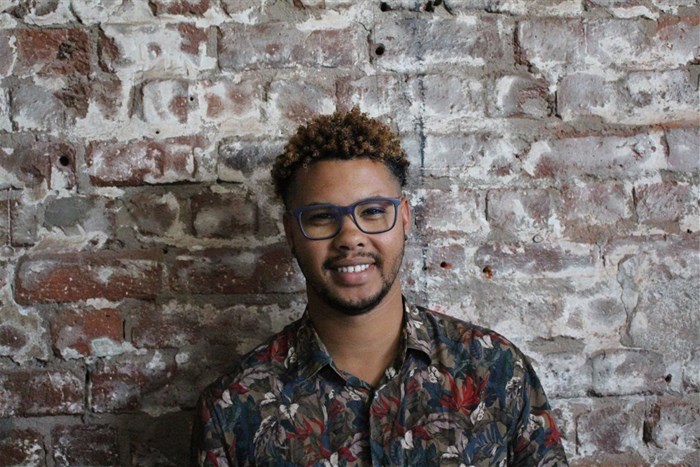The on-demand economy is changing customer expectations, they now require a faster, more personalised and cost-efficient delivery service. Crowdsourcing is the answer to these expectations, it is one of the largest opportunities for package delivery companies today.

Ashley Arendse
According to a new global research study by Zebra, almost 90% of retailers expect to use crowdsourced delivery to handle specific orders by 2028. The crowdsourced delivery model, also known as the Uber package delivery fulfilment model, creates a completely new type of delivery system with the flexibility and scalability to handle same day and last-mile deliveries at a predictable cost.
Until now, many companies tried to offer this service by on-boarding delivery drivers and promising them the world, the freedom of working for themselves, whatever working hours they prefer and good compensation for longer hours. However, these recruitment techniques often bring challenges with retaining drivers.
There are several start-ups like Picup, for example, that have now attracted huge funding to fulfil the vision of on-demand delivery. The future of on-boarded drivers hold a lot of potential within the age of on-demand services, but one needs to build a virtual driver culture and create a positive relationship between the driver, the customer and the brand. This can be done through the use of strategic crowdsourcing techniques.
Building a reliable crowdsourced network
In the beginning, Picup used a driver application process which was extremely impersonal. There were 20 to 30 potential drivers that were involved in each orientation with three sessions per day. The potential drivers underwent training the following day, a criminal check was done and if successful, their profiles were activated.
The purpose of this impersonal mass onboarding technique was to attract 120 active online drivers for Cape Town. There were soon some interesting challenges, a few of the online drivers’ mobile devices were incompatible with updated versions of the app, drivers became despondent as they were not making enough money and the reliability of the vehicles on the platform were not what was envisioned.
The moulding of a legend
Faced with the challenges at hand, we needed to make a few changes. It decided to design a process that would create 'Legends'. The orientation process became a one-on-one meet and greet session, where applicants were scored based on their personality.
The following week, the top scorers from orientation attended a training session where they had to achieve at least 90% on a test. This test was based 80% on customer service and 20% on the driver mobile application.
On passing the test, the potential legends had to do a vehicle assessment and once they met the expectations, a final background check was done. This entire process could take up to 10 working days.
Our Legends know that becoming a successful entrepreneur involves a lot of determination and hard work. They know that to win in tomorrow’s on-demand, last-mile market, they need to focus on the customer experience.
Building a virtual culture
Legends are the heart of the company and our goal is to ensure that the relationship between the brand and the Legends is a collaborative one. On-boarding Legends is a 360-degree relationship, we ensure that we know who they are, and they know who we are. The Legends also help in every possible way to improve the driver app.
The Picup app is fundamentally an app that is built by drivers for drivers. This ensures that the Legends are using an app that will benefit them, the brand and the consumers.
Legends now focus on customer experiences rather than on how much money they are trying to make. They know that, by guaranteeing excellent customer experience, they are both becoming more successful themselves and helping the brand to become more successful, as they retain the customers who have had exceptional experiences.
The future of crowdsourced drivers
As the world moves deeper into the on-demand age, people start to learn to become more skilled at what they do for a living, even for what they were not originally qualified to do. The convergence of different specialisations is an essential part of who we are becoming as human beings and as employees in the age of on-demand services.
It, therefore, goes without saying that drivers are evolving too. In South Africa, we are starting to see crowdsourced drivers working on different platforms, at different times.
Crowdsourced drivers will continue to migrate to platforms that allow the most favourable earnings. Our goal is to ensure that our Legends are earning optimally on every delivery and we designed our Parcel and Rate Calculating System (PARCS) to achieve this.
The crowdsourcing model for Picup, for example, has seen significant improvement since the start. We now have an excellent model that we are constantly refining, and consider our Legends’ feedback of utmost importance in this process. Our previous methods to crowdsource Legends have taught us which techniques are best and what we need to do to ensure our drivers maintain a high standard for customer experience.
Our Legend mindset is aligned to provide an on-demand gratification that today’s consumers are expecting. The future is exciting as the world moves towards a more convenient process, with the fastest possible delivery times, a high standard of customer service and excellent customer satisfaction.
Businesses in all industries will face major challenges in maintaining a reliable crowdsourced network. Adapt and focus on your driver culture or atrophy.





























